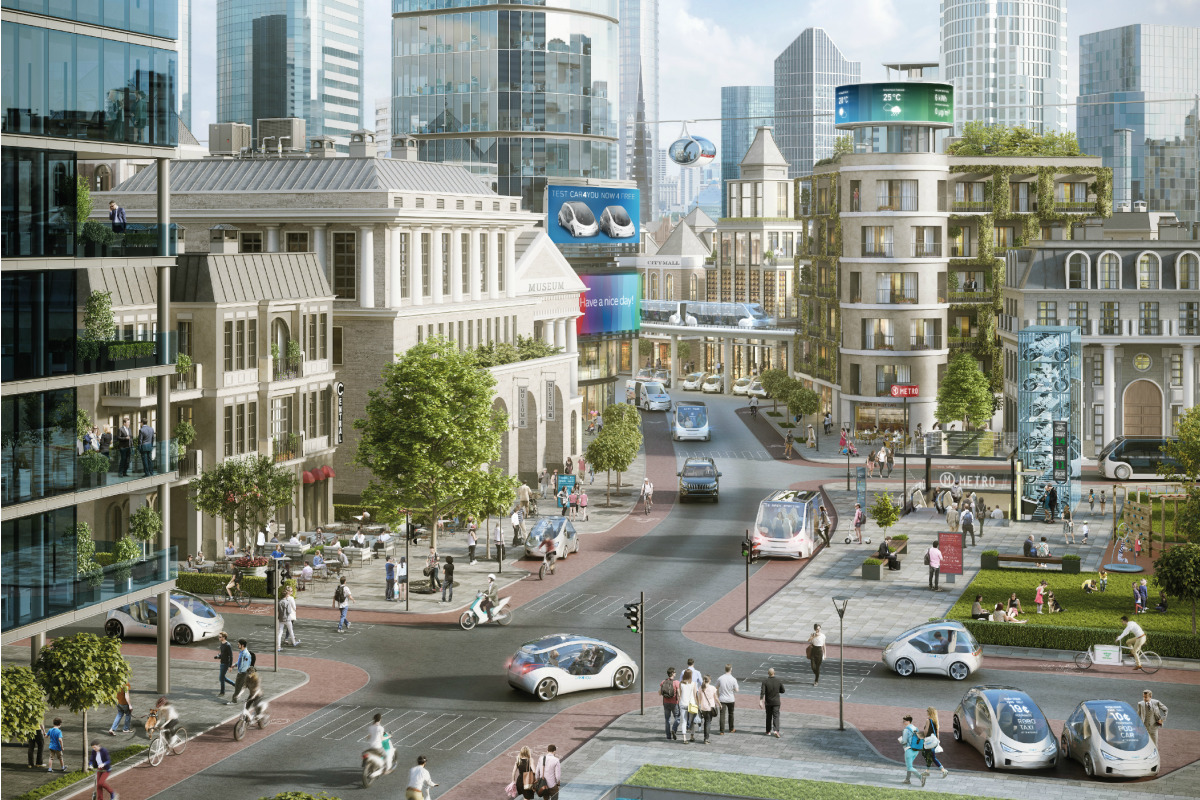

The Future of Smart Cities: How Technology is Transforming Urban Living
The world is witnessing a rapid transformation in the way cities operate and function. The concept of smart cities has been gaining momentum over the past decade, and it’s expected to continue to shape the urban landscape in the years to come. The integration of technology, data, and analytics is revolutionizing the way cities are planned, managed, and lived in. In this article, we will delve into the future of smart cities, exploring the trends, benefits, and challenges that will define the urban experience of tomorrow.
What are Smart Cities?
A smart city is a municipality that uses information and communication technology (ICT) to enhance the quality of life for its citizens, improve efficiency, reduce costs, and promote sustainability. It’s a city that leverages advanced technologies such as the Internet of Things (IoT), artificial intelligence (AI), and data analytics to create a more connected, responsive, and resilient environment.
Trends Shaping the Future of Smart Cities
Several trends are expected to shape the future of smart cities, including:
- Increased Adoption of IoT Devices: The proliferation of IoT devices will continue to grow, enabling cities to collect and analyze vast amounts of data on various aspects of urban life, such as traffic patterns, energy usage, and waste management.
- Artificial Intelligence and Machine Learning: AI and machine learning will play a critical role in analyzing and interpreting data, enabling cities to make data-driven decisions and predict potential challenges.
- 5G Networks: The rollout of 5G networks will provide the infrastructure necessary for widespread adoption of IoT devices and enable faster, more reliable data transmission.
- Electrification of Transportation: The shift towards electric vehicles will transform urban mobility, reducing emissions and improving air quality.
- Smart Buildings and Infrastructure: The integration of smart technologies into buildings and infrastructure will optimize energy consumption, reduce waste, and enhance the overall urban experience.
Benefits of Smart Cities
The benefits of smart cities are numerous, including:
- Improved Efficiency: Smart cities can optimize resource allocation, reducing waste and improving the delivery of public services.
- Enhanced Sustainability: By leveraging green technologies and renewable energy sources, smart cities can reduce their environmental footprint.
- Increased Public Safety: The use of advanced technologies such as surveillance systems and predictive analytics can help prevent crime and improve emergency response times.
- Better Healthcare: Smart cities can provide citizens with access to improved healthcare services, leveraging telemedicine and other digital health technologies.
- Economic Growth: Smart cities can attract businesses, talent, and investment, driving economic growth and innovation.
Challenges Facing Smart Cities
While the benefits of smart cities are undeniable, there are several challenges that cities must address, including:
- Cybersecurity: The increased reliance on technology creates vulnerabilities that can be exploited by cybercriminals.
- Data Privacy: Cities must ensure that citizen data is protected and used ethically.
- Digital Divide: Smart cities risk exacerbating existing social and economic inequalities if access to technology is not equitable.
- Infrastructure Upgrades: Integrating new technologies into existing infrastructure can be costly and complex.
- Governance and Regulation: Cities must establish clear governance structures and regulatory frameworks to ensure the effective management of smart city initiatives.
Examples of Smart City Initiatives
Cities around the world are already leveraging smart technologies to improve the urban experience. Some notable examples include:
- Singapore’s Smart Nation Initiative: Singapore has implemented a range of smart city initiatives, including a national digital identity system and a smart transportation network.
- Barcelona’s Superblocks: Barcelona has introduced a smart traffic management system, reducing traffic congestion and emissions.
- Copenhagen’s Carbon Neutrality: Copenhagen aims to become carbon neutral by 2025, leveraging green technologies and renewable energy sources.
- New York City’s Smart Streetlights: New York City has installed smart streetlights, equipped with sensors and cameras, to improve public safety and reduce crime.
- Dubai’s Smart City Agenda: Dubai has launched a range of smart city initiatives, including a smart transportation system and a smart healthcare program.
Conclusion
The future of smart cities is bright, with technology holding the key to creating more sustainable, efficient, and livable urban environments. However, cities must also address the challenges associated with smart city development, including cybersecurity, data privacy, and the digital divide. By leveraging advanced technologies and collaborating with stakeholders, cities can create a better future for their citizens and become beacons of innovation and progress.
As we look to the future, it’s clear that smart cities will play a critical role in shaping the urban experience of tomorrow. By embracing technology and driving innovation, cities can create a brighter, more sustainable future for generations to come.




